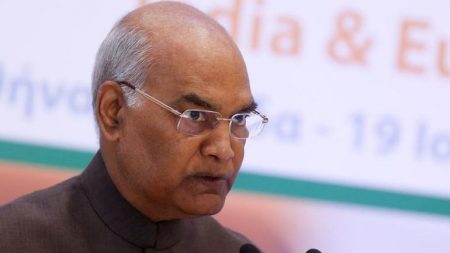President’s Rule 13/06/2019 – Posted in: Daily News – Tags: governor, president
PRESIDENT’S RULE
For: Preliminary & Mains
Topic covers: Article-356, Understand President’s and Governor’s Rule
News Flash
President’s rule in Jammu and Kashmir would be extended for six more months, beginning July 3.
Based on the prevailing situation in the state as stated in the report of Governor of Jammu and Kashmir, the Union Cabinet has approved the extension of President’s Rule in Jammu and Kashmir for a further period of six months with effect from July 3, 2019, under article 356(4) of the Constitution of India.
President’s Rule in a state can continue for 6 months. It can be extended, with the approval of both the houses done every 6 months, for a maximum of 3 years.
Background
The Governor’s rule in Jammu and Kashmir was imposed initially on June 20, 2018, and the State Assembly was kept in suspended.
It is imposed because state plunged into a political crisis when the Mehbooba Mufti-led coalition government was reduced to minority following withdrawal of support by the 25-member BJP in the state.
Under Section 92 of the Constitution of Jammu and Kashmir, there is no provision for further continuation of Governor’s rule after six months.
Hence, on the recommendation of Governor and having regard to the prevailing situation in the state, the President’s rule was imposed on December 20, 2018.
The present term of President’s rule is expiring on July 2.
President’s Rule
In India, president’s rule is the suspension of state government and imposition of direct central government rule in a state.
Under Article 356 of the Constitution of India, in the event that a state government is unable to function according to constitutional provisions, the Central government can take direct control of the state machinery.
Subsequently, executive authority is exercised through the centrally appointed governor, who has the authority to appoint other administrators to assist them.
Background of Article 356
Article 356 is inspired by sections 93 of the Government of India Act, 1935, which provided that if a Governor of a province was satisfied that a situation had arisen in which the government of the province cannot be carried on in accordance with the provisions of the said Act, he could assume to himself all or any of the powers of the government and discharge those functions in his discretion.
The Governor, however, could not encroach upon the powers of the high court. This background has imbued this article with a whiff of a ‘controlled democracy’, which is what the British would have intended then.
Source: India Today
You can follow us on LinkedIn and for more updates related to UPSC IAS Preparation, Like our Facebook Page and subscribe our Diligent IAS Youtube Channel
Also Read Related Daily News

